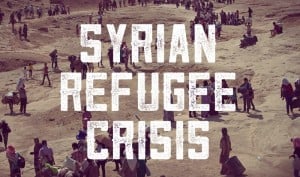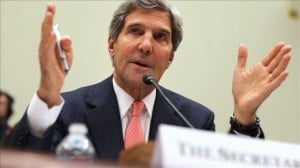In the few short days since controversy erupted around Rev. Louie Giglio’s invitation to pray at the inauguration, I’ve been engaging in a Tevye-esque internal dialogue, ala Fiddler on the Roof, looking at the one hand and then the other hand of this episode. While I believe that it is good that Rev. Giglio ultimately withdrew his acceptance, I think there is substance to the nature of my wrestling. And I’m going to attempt to do with this post what many people bemoan as being the impossible for blogs – I want to start an actual dialogue that doesn’t devolve into a screaming match or demonization. Here are the thoughts I’ve had; I’d like to hear yours. If you disagree with me, please tell me why. I’m opening a conversation, and am willing to be changed. Please comment in a similar spirit.
- The suffering and violence that has been inflicted against the LGBT community in the name of Christianity is real and we must repent for it in word and deed. When our brothers and sisters, our teenagers and our friends, are driven away from the Church and driven toward self-loathing and even suicide because they’ve been convinced they are unloved by God, we have failed as the body of Christ.
- The sum of a person’s ministry cannot be reduced to one sermon. This is a sermon that was delivered 20 years ago. While there’s nothing to indicate that Rev. Giglio has changed his opinions, this has not been the main focus of his ministry. Four years ago when the nation became enraged over the sermons of Rev. Jeremiah Wright, progressives denounced those who reduced his ministry to a few sound bites and didn’t try to understand the broader context in which his words were spoken. Is the only difference between the two that we are more sympathetic to one theological tradition than the other?
- Rev. Giglio has done laudable work on human trafficking. Several months ago I didn’t understand why, out of nowhere, my facebook, twitter, and email all filled with information on modern day slavery. When I traced it all back I discovered that this is something the President has worked closely with evangelical communities to address. Rev. Giglio has been a part of these efforts and devoted his annual Passion Conference, which draws tens of thousands of young evangelicals, to ending human trafficking. This is one of the best examples I’ve seen in recent years of an administration and evangelical communities coming together across ideological divides to work on an issue of common concern. This work is why Rev. Giglio was invited to participate in the inauguration and it should be praised.
- The President is President of all Americans, not just those who agree with him. This is a point Jed Bartlett makes in a classic episode of the West Wing. The inauguration not about swearing in a Democratic President or a Republican President; we’re swearing in an American President. On election night we’re divided into red states and blue states. On inauguration day, we are an American people affirming that we are bound together by a form of government we have created and recreated together for more than two centuries. All Americans should feel they have a place at an inauguration and inviting an evangelical pastor – especially one this President has found common cause with – is a good instinct. I know if the tables were turned and we were swearing in President Bush again I would be touched to see Bishop Gene Robinson invited to deliver a benediction.
- Respect goes both ways. Many thanks to a friend for helping me articulate this. The inauguration should be about all Americans, but it’s not enough to simply exhibit diversity of beliefs and leave it at that. Particularly in this forum, the people representing that diversity of beliefs must also represent an underlying commitment to the ideal that all Americans have inherent dignity and worth. This ideal cannot be realized as long as they are also advocating denying any group of people full citizenship (defined as equality of rights under the law). I am in no way in favor of establishing a litmus test of beliefs before someone is asked to pray for our country. But at an event such as the inauguration, which is about all Americans, it is appropriate to ask whether the public actions of a person reflect the nation we are hoping to build. There are many conservative and evangelical leaders whose work reflects this description without compromising their personal convictions on sexuality and marriage; let’s invite one. Inclusion of one segment of America cannot come at the expense of discrimination toward another.
- Too often when progressives use the language of respect, dignity, and diversity we only mean on our terms, for the people we decide are ok. Democracy thrives on the free exchange of idea and we begin censoring that, we threaten its future.
- Is it inherently discriminatory to say you believe something is a sin? I believe in sin and that some acts are sinful. Does naming them make me someone who preaches discrimination? Would it be any different if Rev. Giglio had preached that homosexuality is a sin, but supported (or at least remained silent on) full civil liberties for LGBT persons and families? If someone is not actively advocating discrimination against another, do I get to deny them public recognition simply because their definition of sin is different from my own? Do conservative Christians have a valid point when they say that they are being stigmatized and excluded on the basis of their faith?
- Christ is at the margins. Read the Gospels and it quickly becomes clear that Christ was almost always among the outcast and the marginalized. He did not scorn the centurions, the religious leaders, or the established class. He praised their faith and had compassion for their cares. But he walked along side those to whom society did not grant full recognition or rights. Whenever we are searching for Christ, we find him at the margins. When it comes to weighing claims to exclusion and discrimination, that is where I am called to be as well.
- Would I be having an internal dialogue at all if the controversial sermon had been about racial minorities, or women? No, I wouldn’t. I do not believe Rev. Giglio had hatred in his heart when he preached that sermon 20 years ago. I do not believe that the millions of Americans who love their LGBT friends and family, but also believe that Scripture defines homosexuality as a sin, are hateful or bigoted people. See my first point, the hatred is real, but I do not believe it is the majority of America. And after reading some of the comments on various blogs denouncing Rev. Giglio, I will say that if we are on the hunt for hateful speech, let’s make sure we remove the beam from our eye as well. But if this had been a sermon about racial minorities, or equal rights for women, I could still admire Rev. Giglio’s commitment to human trafficking, but I would not support him praying at the inauguration. What is the difference between that, and what he preached?
The comment section awaits.
Follow Rachel on twitter at @rachelnoelj











